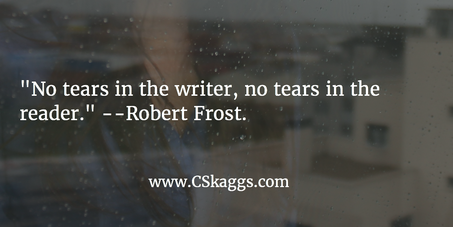|
Late post today as--after a full day of yucky chores getting the kids ready for back to school (what happened to starting after Labor Day?)--I headed to the gym. Not out of strong desire, but rather my son is on a M/W/F schedule, and I don't want to be "that mom" who drops and goes. So I go in. And if I go in, then I should probably, you know, work out.
Most of my life, I've had a love/hate relationship with running. I like it--after I've done it, but getting started is like pulling the cord on a lawnmower that's been sitting in the garage for 8 months. I know this about myself, so I always give myself a bailout. I start running, and after 15 minutes, if I really don't want to continue, I can bail. Typically, that 15 minutes is enough for some feel good hormones to kick in and I can finish the workout. I can't think of a single time when I started that 15 minutes and bailed, but that little white lie, "you can quit" gets me started every single time. I have to lie to myself for my own good. Writing is often like that. There are writing days when we really, really, really don't want to write. <fill in your favorite "reason" that today is a bad day to write> Life puts demands on our time. Kids, family, day job, spouse, pets, and all we really want is a dose of Netflix and a glass of wine. When those days happen, I give myself the same bailout opportunity. IF I start writing, and after 15 minutes I still want to binge watch Dexter, fine. But I have to write for the full 15 minutes first. And like running, once I start writing, the endorphins kick in and I keep going. I just need to lie to myself to get started. So when you have one of those days, <fill in your favorite "reason" that today is a bad day to write>, you only have to do one thing. You guessed it. Lie. Tell yourself that you only have to write for 15 minutes today. I'm guessing that once you start, you won't want to quit after 15 minutes. :)
0 Comments
Writing has its ups and downs, and the downs seem a bit like torture and we fill our minds with doubts... I can't do this? Can I do this? I suck! said with emphasis when the words on the screen cannot match the images in our heads. That's when we need a friend like Sol LeWitt who wrote this wonderful letter to Eva Hess: You seem the same as always, and being you, hate every minute of it. Don’t! Learn to say “Fuck You” to the world once in a while. You have every right to. Just stop thinking, worrying, looking over your shoulder, wondering, doubting, fearing, hurting, hoping for some easy way out... Remember, before Nano started, when you decided to say NO to perfectionism? Now's a good time to banish that perfectionism and write crap for a day or two: If you fear, make it work for you — [write] your fear & anxiety. And stop worrying about big, deep things... You must practice being stupid, dumb, unthinking, empty. Then you will be able to If only someone would read us the full letter every day to remind us that writing isn't easy, but it's our choice, our calling, our special form of torment...and one that we really do love. Oh, wait, Benedict Cumberbatch did read this letter, and it's wonderful. And I'm serious. We should listen to it every day, so we remember to shut up the perfectionist editor in our heads and just write, or as LeWitt says, just do! The full text of the letter is here.
Finishing a book isn't quite as easy as starting one. It's like Newton's 4th law. You see, an object in motion tends to stay in motion, except when it's a novel. The book starts, we're in love with the idea and writing is in motion. And then, as writers, we get in our own way. We are the outside force that stops progress on our novel. I'm a firm believer in knowing your process, respecting your process, and ignoring what doesn't work or fit your particular bent. Enter this wonderful and sarcastic article by Chuck Wendig (are we surprised? we are not). Here's a tease of the full article: 18. Have an outline. Or don’t have an outline. I don’t give a unicorn’s ugly butthole what you do — just make a choice and stick with it. The larger message here is: know your process. You know the things that work for you, so do them. We're studying "the Force." And plotting, so you just might want to pay attention to Luke's "journey." In a recent online forum, the plotters and the pantsers were at it again. Plotters insisting that you must, absolutely must have an outline. The pantsers (those who write by the seat of their pants) insisted that an outline destroys the creative process. The plotter rant (several paragraphs in a social media post with indignant followups) went something like this. No pantser will ever finish a novel. Only someone who can dedicate themselves to creating an extensive outline (over a significant amount of time, because writing should be hard) will EVER succeed in fiction. When questioned--and come on, of course he was challenged, because all-or-never statements are designed to attract dissent--the writer said his guru (I honestly had never heard of the guy who changed this writer's life), who was super famous and had such-and-such credentials, was absolutely right. Long paragraphs filled with his rules much like a religion. And I get it. When a new idea changes our lives, we're all in. Sign me up for the Kool-Aid baby! First, I gotta say...I fall in the middle. I'm somewhere between a plotter and a pantser. I write using the three act structure and Christopher Vogler's The Writer's Journey, but I don't have an outline that fleshes out every action/reaction/chapter/scene. For me, the joy of writing is the unknown, When my subconscious makes a connection that is an obvious "duh," that moment is creative gold. For me (and that's the key), the writing process is a balance between reaching the plot points and finding the surprises. I fall in love with my characters and then build a plot around them. Again, that's all me. The Writer's Journey changed the way I think about writing, especially in the early stages of a project, but, big BUTT (Like "baby got back" butt), I don't expect everyone to drink the Kool-Aid. Vogler isn't for everyone. FYI, Stephen King is a pantser and James Patterson is a plotter. Neither writer is wrong. Who is your guruWriters and other creatives are inherently insecure. When we find a process that works, we think, that's it. That's the only way. And then we seek out people with credentials to validate our position. And then we tout our new guru's "rules" as law and claim them as the only way to success. Because it worked for our guru, it must be right. I get it. I'm working on my second masters degree, this time an MFA in Creative Writing. I'm learning more than I can possibly encompass in my writing, but the truth is, I didn't start the program because I love academics (although, truly, I enjoy school). No. I joined because I wanted validation. After years of studying the craft of writing, I still needed those initials after my name to validate my knowledge. It's no different than spouting the rules and laws of your favorite writing guru. In the end, that's not truth. An MFA doesn't make me a writer. Neither does following someone else's path. Writing isn't a mathematical equation. Thank God, because I suck at math. We need to believe in a path to success, a corporate ladder to climb and steps that lead to ultimate writing nirvana (best selling land). But no matter how "perfect" your process, how it worked for Author X, there is no simple mathematical equation for creative success. Reading and studying are always beneficial, they inform our writing and make us better at our craft, but no one has the perfect cure for creativity. Even your guru. Friends, we are on our ownFriends, we are on our own, and that's a wonderful place! In the gospel according to me (and I'm as faulty as any other writer), the path to success isn't in someone else's "seven secrets to writing success," but rather, the path to success is embracing who you are and accepting that not everyone is on the same path. We're driving different cars and hauling different baggage. We cannot follow the same path to the same results, because we're starting with different equipment and in different locations. Several times a week, I meet up with friends from my publishing house. We all follow different paths (plotter, pantser, and middle of the road), but we're all creating works of fiction for publication. As in, someone pays us to write. None of us are wholly right or wholly wrong. We can only be "right" and truthful as it relates to our personal writing process. The danger of a guru is that we're following someone else's path and not trusting our internal compass. Part of that is the learning process. We need to learn about the writing craft and the industry and the process, but after filling our head with more ideas than can possibly take root in our brains, it's time to decide. What is our process? It may be similar to our mentor, our favorite teacher, or our guru, but it may be a radical departure. And that's cool. Embracing someone else's rules means we're not confident in our own abilities yet. That's okay. We'll get there. The plotter who insisted his way was the only way should be commended for his passion, but his insistence in it being "the only way" is tragic. Chart your own path. You might make mistakes, but that's where you learn the most. Have a wonderful writing week, my friends, and embrace who you are as a writer and a creative. If you're so inclined, let me know your process in the comments. It helps to define it for yourself. And enjoy this 1 minute video: "That's it. That's the reason." How we feel when someone validates our opinion. February 2016 Workshop Frost had a valid point. Emotion originates within the writer. The most efficient—although not the easiest—method to achieve authentic emotions in writing is familiarity with your own emotions. The writer must be open to exposing his emotions in order to elicit them in the reader. Write what you know very specifically applies to emotions. If a writer can’t or won’t expose a raw nerve, the narrative could read as disconnected. If the writer isn’t feeling the adrenaline rush of an action scene, or the heartbreak of a tragedy, it is unlikely the reader will feel those emotions. It’s important to remember that when we’re scared, we’re rarely thinking: “I’m freaking out here.” We are experiencing emotions in real time, within our own skin. What are your symptoms for fear, anger, sadness, or depression? Use those “symptoms” to show the reader the emotions of the character. You might never have experienced being chased through the streets of Amsterdam by a crazed killer, but you have been scared. You know the symptoms. You can imagine the fear and the rush and the panic (or lack thereof). Live the scene and the reader will as well. In the Bourne books, for example, the reader feels the time crunch, the action, the adrenaline of the main character. Robert Ludlum doesn’t spend pages of narrative telling the reader. The reader experiences the story through Bourne. It’s fast-paced, and while not overly emotional or melodramatic, the reader has a visceral experience through Bourne. We recognize anger and revenge and self-preservation without the author telling us that the character feels those things. To a certain extent, the amount of emotion you include in your writing is governed by your genre and your character. Character: There is a balance between not enough and too much emotion in a novel. I recently read a book by a NYT bestselling author. In a later chapter, a male character spends six to eight pages “telling” another character his emotions. As a female, if my best friend goes on for the equivalent of six to eight pages, I’ll make appropriate noises of compassion, but by the sixth page, I’m ready to suggest therapy. If a male friend went on for six pages, I’d have to swallow my tongue to keep from telling him to man up. Conversely, characters who feel too little on the page come across as emotionally stunted. My characters rarely have their personal shiz together. I like them a little off balance, but I run a fine line between creating characters that are emotionally reserved and presenting a character that the reader can not relate to. I have a novel that I cannot sell for the life of me, because the editor/agent doesn’t like the main character. I absolutely adore her. She’s broken and numb and emotionally jacked, but if I don’t show enough emotion at the outset, in order for the reader to connect, that book will stay on my hard drive. Your characters need to behave in a way that is authentic to their gender and their persona. Genre: I cannot express this enough. You need to know your genre. Read extensively across the line to see the level of emotion present in the genre you want to publish. Thrillers spend a lot less time on emotional details than a romance. Where’s the line? Read, read, read. There is no substitute. Stephen King has said, “If you don't have time to read, you don't have the time (or the tools) to write. Simple as that.” Now to specifics. The best novels present emotional details in much the same way we do setting. 1) Reveal emotion through body language. Body language is something a writer should study. People-watching is a valid writing activity. Let the movement of the character through the scene suggest an emotion that you don’t specifically name. The reader may interpret the body language differently than the writer intends, but that’s okay. The same happens in real life when one person recognizes depression while another assumes apathy. The reader brings their observations and experiences to the story. The Emotion Thesaurus is a good place to start for specific movements related to different emotions. As the character moves through the scene, have him notice little details. The witness’s hand is icy cold, despite her calm demeanor. The suspect’s flirtatious laughter is high and false. The guy at the table keeps looking at the door. Is he waiting for someone or searching for a quick exit? Let the character experience and witness details organically in the story. Like setting, emotions shouldn’t be dropped into the scene in a large info dump. Drop nuggets into the active scene as the character encounters it. That way, the reader doesn’t skip around or get bored. 2) Reveal emotion through a character's level of experience. A hardened detective will notice signs of avoidance or outright lying by a suspect, but he’s probably not what we’d call emotionally sensitive. Not cruel, but he’s probably not going to be moved by a witnesses tears. If he spends six pages of narration talking about how lonely he is, we are going to do the equivalent of telling him to man up. We’re tossing that book aside. A victim, on the other hand, probably won’t notice the lying, except in hindsight, perhaps. Instead, the victim experiences the shock of betrayal. How does that look or feel? If you’ve been betrayed or lied to or cheated on, you know how that feels. Describe the symptoms not the emotion. 3) Reveal emotion through the mood of the story. As the article on setting Four Ways to Bring Setting to Life expressed: “Filtering a scene through a character's feelings can profoundly influence what the reader sees.” Word choice is key to setting the mood and emotion of the story. 4) Reveal emotions through the senses. Smell pulls memory from a character. They’re walking down the street and smell pizza from the nearby pizzeria and are reminded of their first breakup. They pass an alley and smell urine and rotting garbage. They pass a florist and remember their grandfather’s funeral. You don’t have to tell us the mood (emotion) of these characters, because the details the character notices do that for us. Remember from our lesson last month:
ApplicationTo focus on emotion in a scene, ask yourself these questions:
Look at the following pictures. What emotions do you see reflected in the image? Does it matter what genre you’re writing? Your character? NOW, ask the ten questions above, and write a short segment (approx 100 words) to evoke that emotion based on the photo of your choice. Feel free to post your writing prompt in the comments below! Read more:This is exactly what we were talking about last Thursday! I found it here. I find it fascinating what other writers think on the same topic...nearly simultaneously. Very cool. Anyway, best line for me on The Importance of Writing from the Heart by Scott D Southward: "Heart is the one thing that truly can’t be taught in an English or writing classroom, but it is also the most important thing a writer will need. And if used right by a writer, it can change opinions, stir a reader to act, and even make people cry or laugh. It is what takes a jumble of words and turns them into a message." We have to be willing to take risks and expose our mangled heart when we write! Enjoy the article. :)
Frequently in our writers group, we discuss the hook and many writers bemoan that this in some way inhibits their art. This blog post does a great job of the why and why not of the narrative hook.
From All the Write Stuff: A hook is "rarely a single element standing alone. Rather it is something that piques my interest and is supported by other variables like the power of the prose; the charisma of the characters; the wonder of the world; my confidence in the author; etc.Often though, the common theme uniting successful hooks is a sense of urgency." |
AuthorWriter, college professor, lover of story, fan of all things bookish. Plus chocolate, because who doesn't love chocolate. Archives
August 2019
Categories
All
|




 RSS Feed
RSS Feed